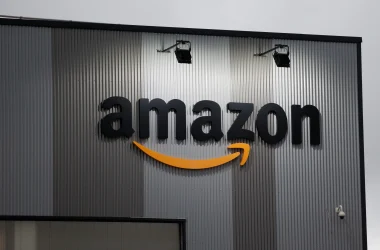The European Union has slapped Meta, formerly known as Facebook, with a record $1.3 billion fine for violating data privacy laws. The fine, which was imposed by Ireland’s Data Protection Commission (DPC), is the largest ever levied by the EU for a data privacy violation.
The fine stems from Meta’s transfer of personal data of EU users to the United States. The EU’s General Data Protection Regulation (GDPR) prohibits the transfer of personal data outside of the EU unless the receiving country has adequate privacy protections in place. The US does not have adequate privacy protections, according to the EU.
Meta has been transferring the personal data of EU users to the US for years. In 2014, the Irish DPC ruled that Meta’s data transfer practices were illegal. However, Meta appealed the ruling and the case has been tied up in court ever since.
In its ruling, the Irish DPC said that Meta had “failed to put in place appropriate safeguards” to protect the personal data of EU users. The DPC also said that Meta had “failed to adequately inform users about the transfer of their data to the US.”
Meta has said that it will appeal the fine. However, the fine is a major setback for the company and could have a significant impact on its business. The fine could also deter other tech companies from transferring the personal data of EU users to the US.
The EU’s GDPR is one of the strictest data privacy laws in the world. The law gives EU citizens more control over their personal data and requires companies to be more transparent about how they collect and use data. The GDPR has been praised by privacy advocates, but it has also been criticized by some tech companies, who say it is too burdensome.
The Meta fine indicates that the EU is serious about enforcing its data privacy laws. The fine could also send a message to other tech companies that they need to comply with the GDPR or face stiff penalties.
What does the fine mean for Meta?
The fine is a major setback for Meta and could have a significant impact on its business. The fine could also deter other tech companies from transferring the personal data of EU users to the US.
Here are some of the potential implications of the fine for Meta:
- Meta could be forced to stop transferring the personal data of EU users to the US. This could significantly impact Meta’s business, as it relies on this data to target ads.
- Meta could be forced to pay more for data protection compliance. This could add to the company’s costs and make it less competitive.
- Meta could be more likely to be targeted by future data privacy investigations. This could lead to more fines and other penalties.
What does the fine mean for the EU?
The Meta fine is a sign that the EU is serious about enforcing its data privacy laws. The fine could also send a message to other tech companies that they need to comply with the GDPR or face stiff penalties.
Here are some of the potential implications of the fine for the EU:
- The fine could help to protect the privacy of EU citizens.
- The fine could deter other tech companies from violating EU data privacy laws.
- The fine could help to strengthen the EU’s position in the global debate on data privacy.
Future of Data Privacy
The Meta fine is a significant event in the global debate on data privacy. The fine could help to set a precedent for future data privacy cases and could lead to more stringent regulations on how tech companies collect and use data.
Here are some of the potential implications of the fine for the future of data privacy:
- The fine could lead to more stringent data privacy regulations around the world.
- The fine could make it more difficult for tech companies to collect and use data.
- The fine could lead to more lawsuits against tech companies for data privacy violations.
The Meta fine is a major development in the fight for data privacy. The fine could have a significant impact on Meta’s business and could send a message to other tech companies that they need to comply with data privacy laws. The fine could also help to strengthen the EU’s position in the global debate on data privacy and could lead to more stringent regulations on how tech companies collect and use data.






